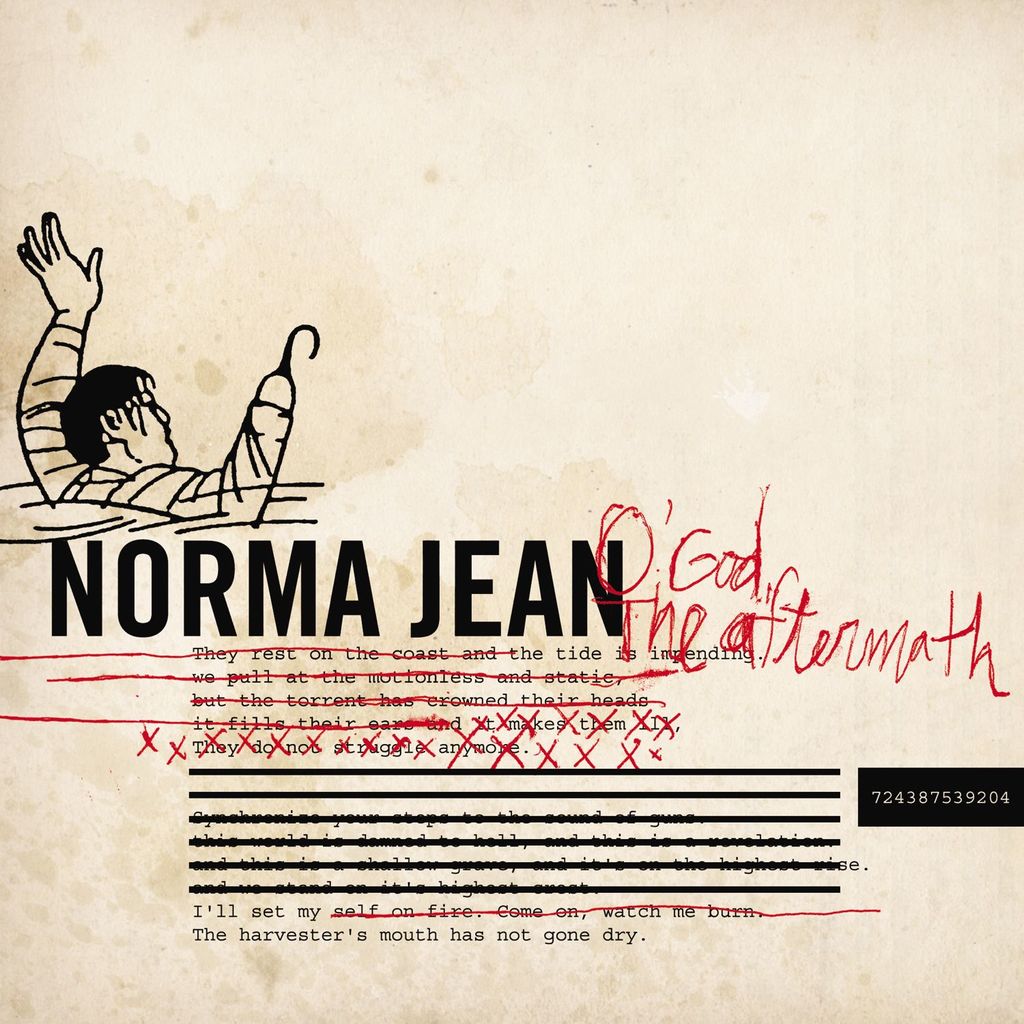What does it mean for a band or musician to become successful? Is it monetary value? Is it gaining the respect of both audience and peer? Is it an artist or band’s career length? Or is it something bigger?
Success first would need to stem from a band’s actual music, performance, or presentation; whether their musical works made a difference, inspired, or conquered what was first initially set out by that band or artist. A single album can be measured by it’s album sales, popularity, exposure, but more importantly its depth, its scope. How does that release stand up to the test of time?
Norma Jean released O’ God The Aftermath ten years ago last week – March 1st, 2005 to be exact.

As an empathetic, captivated audience, we feel and suffer with Brandan. “Dilemmachine” and “Murderotica” for first time listeners will seem unbearably savage, but “Bayonetwork” helps ease some of the tension with its blendered chorus … Yes, as if Brandan’s mellifluous melodies were shoved into a blender from hell and then re-animated for this sound recording. (“This is between me and this blade / And my heart”). This all until “Disconnecktie” brings its cleansing and cathartic attribute to O’ God‘s otherwise manic approach.
But “Charactarantula” proves that the ever-volatile Norma Jean have saved the best for last … “Separate the widow from the bride.” Or in this case, separate the listener from the grave, because it feels as if we’ve dug ourselves too deep – this feels like the final resting place for our sanity.
But before you dust off the old pine box for the big sleep, O’ God seeks redemption through “Scientifiction,” which from its wrath leaves behind in its wake arguably the most poignant, waning instrumental moments of the record, helping pull the listener back from the void. It truly polishes off an album worthy of at least another ten years of both recognition and appreciation.
We won’t see another release quite like O’ God, and it’s all but safe to say that Norma Jean knew at least that much when they left its brilliant destruction behind for a chance to make its powerful counterpart, Redeemer. (Redeemer is the yin to O’ God‘s yang, as it provides a more focused, less terrorizing perspective. But, it still brings the heat.)
And lest we forget, the artwork that accompanies the album is equally as haunting as the music itself. It even managed to get nominated for a Grammy; Best Recording Package. O’ God The Aftermath is complete in all its parts – artwork, music, message and sound.
As physical album releases dwindle, and as the digital-only release continues to rise, there’s something to be said for what is really being lost in the music industry… Ahem, full artistic expression.
O’ God The Aftermath is invariably the band’s heaviest release. And arguably their most well-rounded.
If you’re going to give this one a chance, do it justice by purchasing the physical copy, so that you may understand the entire record as a whole – not just the musical aspect.
O’ God The Aftermath is still inspiring musicians to this day, and most importantly, it’s still being remembered, cherished even, for how it changed heavy music for the better. How else can you define success?
All hail the almighty Norma Jean.
Written by Samuel Lang of 303 Magazine.
Video and photo courtesy of Solid State Records and Norma Jean.







